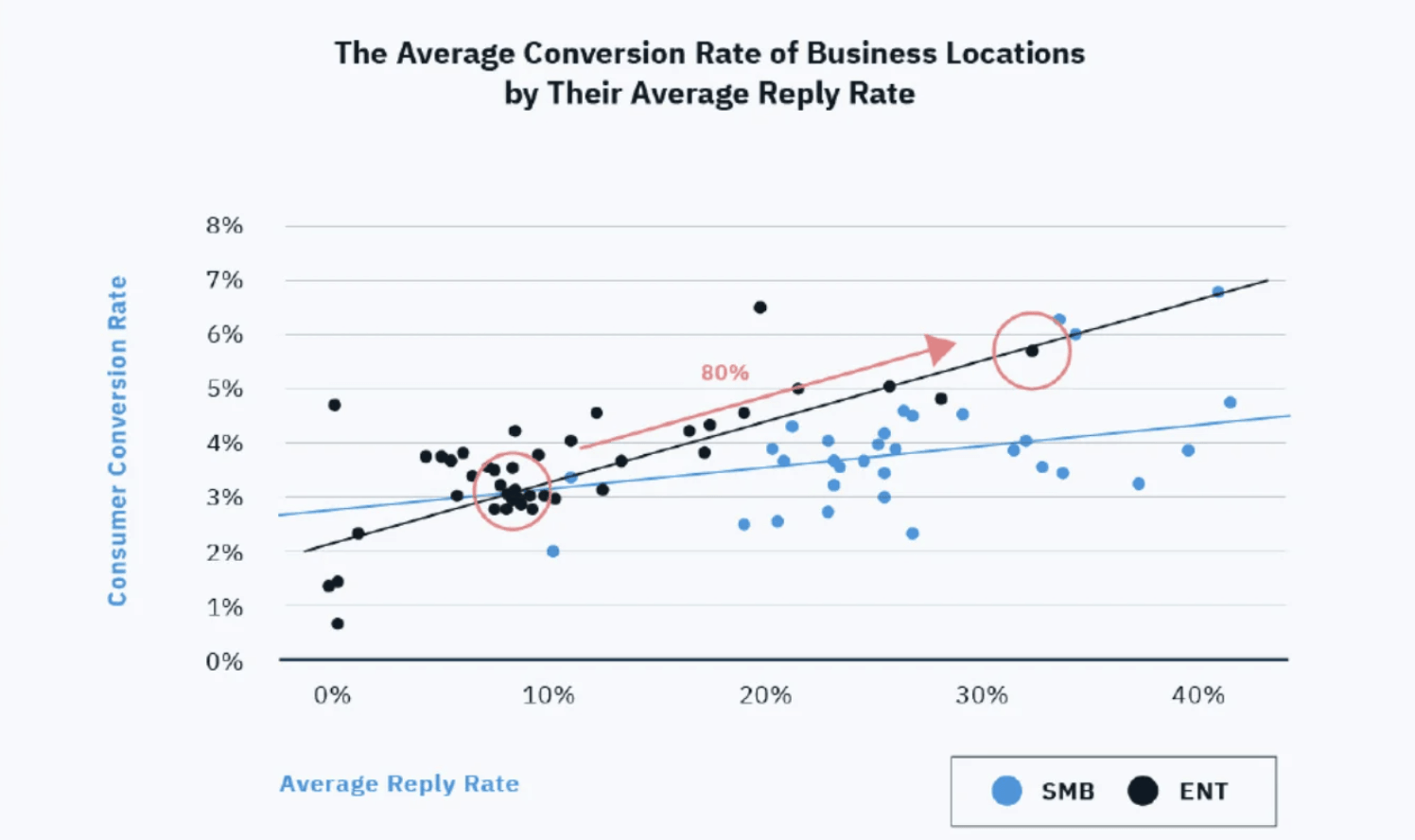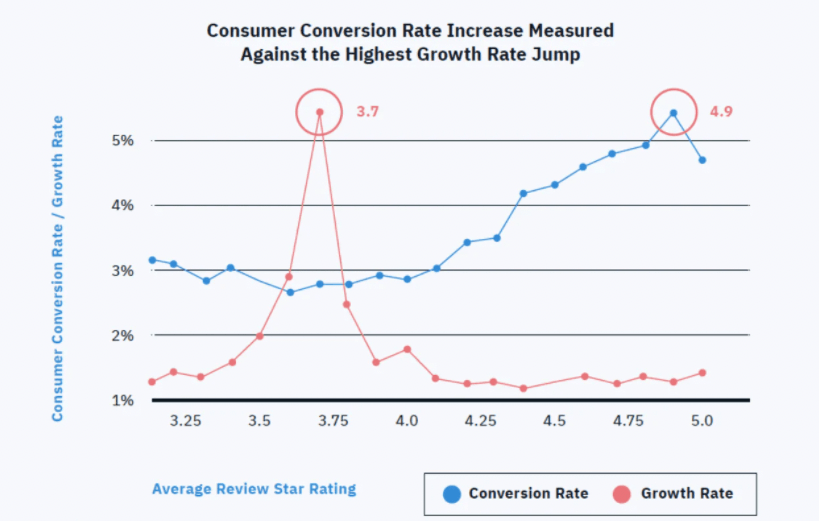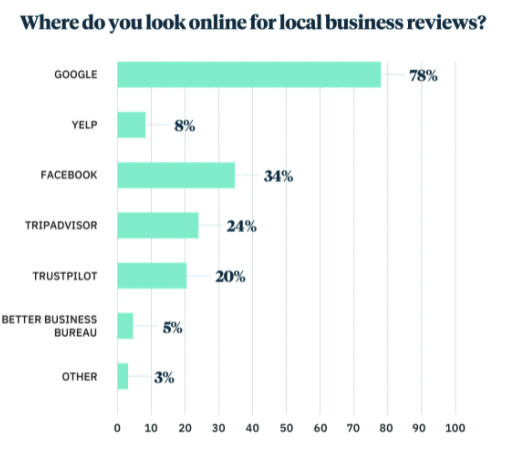Customer acquisition and optimised online reputation through active review

Even without an active search, the reputation of one's own company is nowadays constantly present and can be viewed by potential customers at any time thanks to online reviews. Especially as an entrepreneur, it is important to build up a qualitative review management with the help of digital tools and to react quickly to customer reviews.
Review management includes monitoring, analysing, responding to and generating customer reviews across multiple online review platforms.
Going into details, review management includes:
- Encouraging clients to give reviews for services provided;
- Responding to customer reviews in a timely and appropriate manner.
- Generating as many positive reviews as possible to expand the customer base and stay ahead of the competition.
- Develop a consistent behavioural pattern for both positive and negative reviews.
Loyalty, trust and improved conversion rate
It doesn't matter if you are a big brand or have a small business: Review management is considered an integral part of reputation management and has a positive and protective effect on the online reputation of any company. It serves to gain the trust and loyalty of customers. Studies show that almost 60 percent of respondents only show their loyalty to a brand if it takes their concerns seriously. Trust is also one of the main drivers of an authentic and transparent brand building process. This includes negative reviews, because the absence of negative reviews tends to fuel mistrust among 95 percent of respondents.
With review management, the so-called "conversation rate" can https://my.duda.co/home/site/45790954/customer-acquisition-and-optimised-online-reputation be increased. The motto is: the more reviews (positive and negative) are answered, the higher the conversion rate. Companies that had a response rate of 32 in 2021 achieved 80 percent more conversions than their competitors, for whom the same indicator was below 10 percent.

Review management is the real influencing factor in purchasing decisions. This increases significantly when their business service is recommended in the reviews. For 93 percent of customers in 2021, the recommendations of other users were decisive for their purchase.
In review management, the number of positive star ratings is given a special position, because it measures the popularity of a company. Along with distance and relevance, this is considered one of the biggest ranking factors for increased visibility. The star rating is directly related to the conversion rate. In other words, the higher the average star rating, the higher the conversion rate.

Nowadays, customers participate in two ways when it comes to review management: they read and submit reviews themselves. And the trend is rising. According to the latest Statista report, consumers between 25 and 34 have submitted an online review at least once.
Large companies and SMBs are challenged in different ways when it comes to maintaining a good online reputation: the smaller companies suffer from the scarcity of digital resources, while the larger ones find it difficult to develop a unified communication strategy towards customers. In order for these complex processes to go smoothly, a well thought-out approach is essential.
Where are the ratings given?
According to Uberall research, online reviews on Google are significantly more important for most consumers in their purchasing decisions (80 per cent) compared to those on other platforms. However, the importance of reviews on other industry-relevant portals such as Facebook, Tripadvisor, etc. should by no means be downplayed, as these also contribute their share to increasing the online visibility of a location. However, with many reviews from different online directories, it is usually difficult to keep track of them all. In order to manage these centrally and thus save valuable time, an intelligent software solution such as Yelnex is the perfect solution, as it allows you to better analyse customer opinions and gain important insights throughintuitive and flexible reports.

Where are the ratings given?
Successful review management requires the following for success:
- Responding to online reviews regularly and promptly.
- Ability to maintain composure even in the face of negative reviews, taking the concerns of the disgruntled customer seriously and not shying away from a conversation with them.
- Using persuasion to get the dissatisfied customer to return.
- Individual or personalised response, which resonate positively with most consumers.
- Achieving conversions through a large number of star ratings.
- Ability to show the other prospects that one has style and strength and that he really cares about the customers. Last but not least, this significantly increases one's credibility.
In addition to the above, you should refrain from buying positive reviews, because contrary to all beleifs, such an approach can ruin the company's reputation and push down its ranking in the search results.
How do you respond to reviews?
Responding to customer reviews remains at the core of online reputation management. For both positive and negative references, it is advisable to develop friendly and personalised manners:
Positive feedback: If a customer has taken the time to write something nice about your service, it is natural to at least thank them for their time. Responding to a positive review strengthens customer loyalty and makes people feel wanted and appreciated. Ignoring a positive review could usually have the opposite effect and make the satisfied customer feel neglected and turn to the competitor.
Negative feedback: In general, it is important to know how useful negative feedback can be in order to better understand your customers. Other customers will be watching closely to see how much value you place on your customers when something goes wrong. You should not view negative feedback as criticism, but as an opportunity to learn. Admit your mistakes, don't contradict and always remain transparent with the customer, even if you assume they are wrong in their point of view. Apologise and take the opportunity to offer a satisfactory and alternative solution to the problem. As the following study found, 78% of people who criticised a service on social media expected to hear back within an hour. Consumers expressing frustration via other platforms expected a response time of 24-48 hours.
Whether you like it or not, every online service in the digital age will be evaluated sooner or later. Therefore, be active in review management, generate a lot of positive customer feedback, protect your reputation and optimise your online visibility.
Source: Uberall GmbH
“During our partnership with Yelnex, we were shown promising new ways to find new clients and increase sales and customer satisfaction. We would recommend this company highly to anyone.”
Sven Taylor
CEO ProX Marketing Ltd.
Contact us and benefit from Yelnex products and services
We'll help you improve your online visibility and bring more customers to your business
CONTACT
+49 221 96699571
info@yelnex.com
62 Hohenstaufenring
Cologne 50674
NEWSLETTER
You need a helping hand with your project?
We will get back to you as soon as possible
Please try again later
All Rights Reserved | Yelnex GmbH


